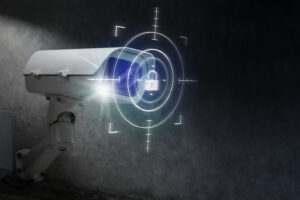One of the biggest questions about CCTV cameras is whether or not they can target employees. The answer depends on the purpose of the surveillance system, how effective it is, and the level of privacy it provides. The following article addresses these questions. It also addresses privacy concerns and legality concerns. Ultimately, you must make the decision for yourself whether or not CCTV cameras are a good idea for your business.

Effectiveness of Cameras in the Workplace
In addition to deterring theft, CCTV can also be effective in reducing violence. Recent studies have compared the effectiveness of different CCTV systems. They found that installing CCTV cameras in the workplace reduced crime rates by an average of 35%. The cost of installing CCTVs is often lower than the cost of improving street lighting.
A review of 41 CCTV studies shows that the use of CCTV can significantly reduce crime. However, this effect is not universal and is limited to the UK. The average RES in the UK is 1.19, while those in other countries only saw a 3% increase. Furthermore, CCTV seems to work better in areas that are well-defined, such as public transport and car parks.
Optimizing Cost-Effectiveness and Security with Workplace Cameras
Many municipalities have installed CCTV cameras for crime prevention purposes. However, some of these systems have gone beyond the original mandate. One such example is Oakland, California, which used federal money to protect its ports to install citywide surveillance. The uptime of the city’s system is only 32 percent, and critics point out that the cameras do little to prevent crime.
The cost-effectiveness of CCTV systems must be evaluated empirically and by an independent body. The objectives and intended outcomes must be clearly defined, and the CCTV equipment should be appropriate for the problem. Moreover, the data must be protected and the retention period should be clearly defined. Lastly, citizens should be made aware of the objectives, costs, and benefits of the CCTV systems. Furthermore, they should be required to see regular reports regarding the effectiveness of such surveillance systems.
Addressing Privacy Concerns and Employee Rights Regarding Cameras in the Workplace
The use of CCTV in the workplace can raise privacy concerns. Under GDPR, employers must state the purpose of monitoring employees with CCTV, and employees must be given notice that their personal information is being recorded. The purpose of monitoring must be proportionate to the risks to the data subject. Employers should also implement signage warning employees of CCTV presence, and adopt appropriate technical and organizational measures to minimize the risk of a data breach. Moreover, employers should limit access to CCTV systems to prevent access by unauthorized individuals.
Video surveillance footage usually contains images of people. These images may be used to identify individuals directly or indirectly, making the footage personal data. In the EU, video surveillance is used in nearly all public buildings and institutions. These video surveillance systems can range from a single camera to hundreds. Public institutions and small executive agencies have policies that support their use.
Is It Legal to install Cameras in the Workplace?

While CCTV cameras are helpful for the safety of a business, the legality of using these cameras to monitor employees is a question that requires careful consideration. These cameras may infringe on the privacy of employees, especially if they are used to monitor general behavior and efficiency. However, the use of surveillance cameras in the workplace may be justified as an investigative tool in cases of suspected criminal activity. When considering the implementation of cameras in the workplace, it is essential to balance the employer’s need for security and the employees’ rights to privacy.
If CCTV cameras are being used to target employees, employers must provide adequate notice to employees and obtain their consent. This notice should be specific and detailed and should be included in the employee handbook. Additionally, employers should refrain from recording audio in surveillance footage.
Just so you know about AT-NET Services…
The Best MSP and Cybersecurity Professionals: Integrating CCTV Cameras in the Workplace
CCTV cameras in the workplace are scrutinized for their potential to target employees, focusing on their effectiveness in crime reduction, cost-efficiency, privacy implications, and legal considerations. CCTV systems have been shown to deter theft and reduce violence, with studies indicating a significant decrease in crime rates in monitored areas. However, the effectiveness and cost-efficiency of these systems can vary, with some criticisms regarding their actual impact on crime prevention. Privacy concerns are significant under GDPR, mandating employers to justify surveillance and protect collected data. Legally, using CCTV to monitor employees requires clear notice and consent, avoiding infringement on privacy rights. The decision to implement CCTV in businesses involves balancing these diverse factors.
Learn more about our services:
Managed IT Services
IT Consulting
IT Helpdesk
IT Support
Cyber Security
created by Jeff King (Linkedin – Jeff King)




